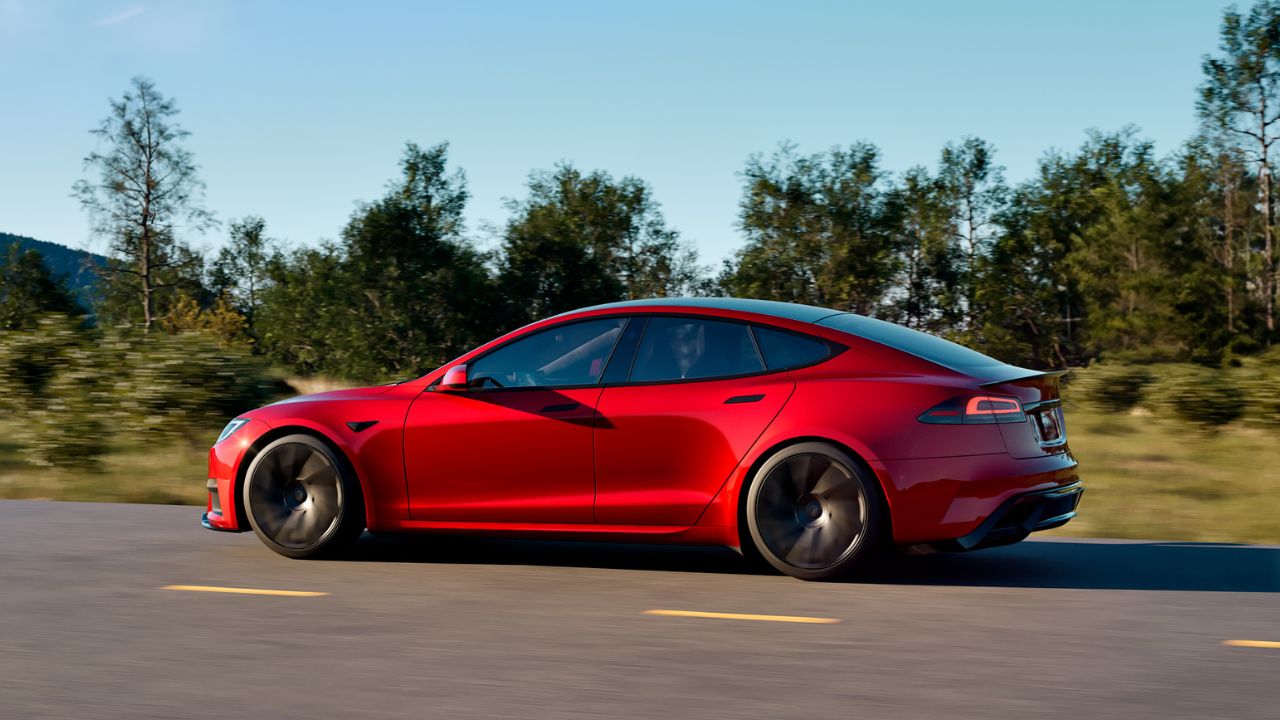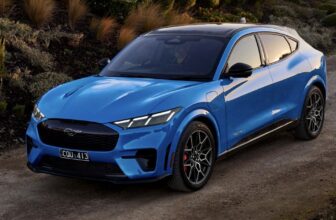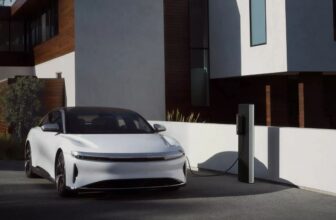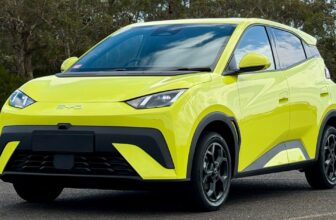
Try our newest merchandise
The automotive world is at a captivating crossroads, and truthfully, it’s by no means been a extra attention-grabbing time to purchase a automobile. Electrical autos have developed from quirky experiments into official contenders that may embarrass supercars at stoplights, whereas gas-powered automobiles proceed to supply benefits that EVs merely can’t match but.
The selection between plugging in or filling up isn’t nearly being eco-friendly or conventional — it’s about matching a automobile to your precise life-style, driving habits, and priorities. Whether or not you’re a each day commuter uninterested in fuel station stops, a road-tripper who wants most flexibility, or somebody who simply loves the sound of a great engine, there’s a compelling case to be made on either side.
We’re about to interrupt down the real-world concerns that ought to information your resolution, from the sensible stuff like prices and charging infrastructure to the intangible components like driving expertise and long-term possession satisfaction.
Upfront Price: The Sticker Shock Actuality
Let’s handle the elephant within the showroom: EVs sometimes value extra upfront than their fuel counterparts. The common new electrical automobile within the US sits round $55,000, whereas the common gas-powered automobile is available in nearer to $48,000, although these numbers shift as extra inexpensive EVs enter the market. Federal tax credit as much as $7,500 can considerably slim that hole, however not each EV qualifies, and also you’ll want to fulfill revenue necessities to say the complete credit score.
The value distinction issues much less when evaluating particular fashions — a gas-powered luxurious SUV may cost a little simply as a lot as a mid-range electrical one. In case you’re budget-conscious, the used market is price exploring, although EV choice remains to be restricted in comparison with fuel autos.
The excellent news is that EV costs proceed to drop as battery expertise improves and manufacturing scales up, making them more and more aggressive with conventional autos.
Gas Prices: The place EVs Actually Shine


That is the place electrical autos completely dominate the dialog, and the maths is fairly compelling. The common American driving 12,000 miles yearly will spend round $1,500-$2,000 on fuel (relying on automobile effectivity and fuel costs – some research present the common reaching upward of $2,500), whereas the identical distance in an EV prices roughly $500-$600 in electrical energy when charging at dwelling. That’s doubtlessly $1,000-$1,500 again in your pocket each single 12 months.
Public charging prices greater than dwelling charging, however it’s nonetheless usually cheaper than fuel, and lots of workplaces supply free charging as an worker perk. Fuel costs fluctuate wildly based mostly on geopolitics and seasonal demand, whereas electrical energy charges are typically extra secure and predictable.
Over a typical five-year possession interval, you’re financial savings that may successfully offset a lot of that increased upfront EV value, making the whole value of possession surprisingly aggressive.
Upkeep: The Simplicity Benefit


Right here’s the place EV house owners begin to sound a bit smug, and truthfully, they’ve earned it. Electrical motors have far fewer transferring elements than inner combustion engines — no oil adjustments, no transmission fluid, no spark plugs, no timing belts, and no exhaust methods to fret about. Your primary considerations are tire rotations, brake fluid, and cabin air filters, plus occasional brake service (although regenerative braking means brake pads final considerably longer).
The common fuel automobile proprietor spends round $1,200 yearly on upkeep and repairs, whereas EV house owners sometimes spend nearer to $800-$900. That mentioned, when EVs do want repairs — notably battery-related points — they are often costly and require specialised technicians. Fuel autos profit from a century-old restore infrastructure, which means you could find a professional mechanic in virtually any city.
The upkeep story clearly favors EVs, however the established service community for fuel automobiles presents peace of thoughts that shouldn’t be dismissed.
Vary and Refueling: The Street Journey Issue


This stays essentially the most contentious battleground between fuel and electrical advocates, and for good purpose. Most trendy EVs supply 250-350 miles of vary, with some premium fashions exceeding 400 miles, which handles each day driving and weekend journeys with out drama. Fuel automobiles can simply journey 400-500 miles on a tank and refuel in 5 minutes at any of the 150,000+ fuel stations nationwide.
The distinction turns into stark on lengthy highway journeys: that five-minute fuel cease versus a 20-45 minute charging session essentially adjustments your journey rhythm. On the flip facet, EV house owners by no means go to fuel stations for each day driving — you permit dwelling with a “full tank” each morning. In case your typical driving includes commuting and operating errands inside 100 miles of dwelling, vary nervousness is essentially psychological relatively than sensible.
For many who commonly drive 300+ miles in a day or dwell in areas with sparse charging infrastructure, fuel autos nonetheless supply superior comfort and suppleness.
Charging Infrastructure: The Community Impact


The charging panorama has improved dramatically, however it’s nonetheless a combined bag relying on the place you reside. The US now has over 60,000 public charging stations with greater than 170,000 particular person charging ports, concentrated closely in city areas and alongside main highways. Tesla’s Supercharger community stays the gold commonplace for reliability and protection, and it’s steadily opening to non-Tesla EVs.
Dwelling charging is the actual game-changer for EV house owners — set up a Degree 2 charger in your storage, and also you’ll deal with 90% of your charging wants with out ever visiting a public station. Residence dwellers and people with out devoted parking face real challenges, as public charging will be inconvenient and dearer. Rural areas nonetheless have important charging gaps, although federal infrastructure investments are concentrating on these areas.
Fuel stations stay much more ubiquitous and constant of their expertise, giving fuel autos a transparent benefit for many who can’t cost at dwelling or often enterprise off the crushed path.
Efficiency: On the spot Torque vs. Engine Character


Electrical autos ship a driving expertise that’s genuinely addictive, and even automobile fanatics who have been skeptical typically turn out to be converts after their first check drive. That instantaneous torque from a standstill — no ready for turbos to spool or RPMs to climb — creates acceleration that feels nearly unnaturally responsive. A mid-range EV can hit 60 mph in beneath 5 seconds, a efficiency metric that may have required a severe sports activities automobile only a decade in the past.
Nonetheless, there’s one thing intangible about an incredible fuel engine — the sound, the vibration, the connection you are feeling by way of the throttle pedal — that EVs merely don’t replicate. Many fanatics genuinely benefit from the mechanical involvement of shifting gears and dealing by way of an influence band. EVs are typically heavier as a result of battery packs, which impacts dealing with dynamics otherwise than lighter fuel autos.
Each supply compelling efficiency traits; it actually comes down as to whether you prioritize uncooked acceleration and smoothness or the sensory engagement of conventional powertrains.
Environmental Affect: The Greater Image


The environmental query is extra nuanced than “electrical good, fuel dangerous,” although EVs undoubtedly come out forward general. An electrical automobile produces zero tailpipe emissions, which considerably improves native air high quality, particularly in city areas. Over its lifetime, an EV generates roughly half the carbon emissions of a comparable fuel automobile, even when accounting for manufacturing and electrical energy era.
Nonetheless, battery manufacturing is energy-intensive and includes mining supplies like lithium and cobalt, which raises official environmental and moral considerations the business continues to deal with. The environmental good thing about your EV relies upon partly in your native electrical energy grid — charging in states with clear power sources presents larger emissions reductions than areas relying closely on coal.
Fuel autos have turn out to be remarkably cleaner over the many years, with trendy engines producing a fraction of the emissions of automobiles from the Nineties. If minimizing your carbon footprint is a precedence, EVs are the clearer selection, however they’re not excellent, and the business is working to make each battery manufacturing and electrical energy era cleaner.
Chilly Climate Efficiency: The Winter Actuality Examine


Winter climate exams each automobile varieties, however EVs face some distinctive challenges that deserve sincere dialogue. Chilly temperatures can scale back EV vary by 20-40% as a result of batteries function much less effectively within the chilly, and operating the heater attracts important energy from the battery.
Fuel autos additionally lose some effectivity in winter, however it’s much less dramatic, and also you’ve bought waste warmth from the engine to heat the cabin with out vary penalties. Trendy EVs have improved cold-weather efficiency with battery pre-conditioning and warmth pump expertise, however if you happen to dwell in Minnesota or Montana, it’s good to issue this seasonal vary loss into your planning.
The benefit of preheating your EV whereas it’s nonetheless plugged in — stepping right into a heat automobile with out idling within the driveway — is genuinely fantastic. Fuel automobiles stay extra predictable in excessive chilly, although they require a couple of minutes of warm-up time. In case you expertise harsh winters, check drive an EV throughout chilly months and perceive that your real-world vary will fluctuate seasonally greater than with a fuel automobile.
Resale Worth: The Depreciation Query


The resale marketplace for each automobile varieties has been unstable currently, making predictions difficult. EVs traditionally depreciated sooner than fuel automobiles, primarily as a result of speedy enhancements in battery expertise and vary that made older fashions much less interesting. Latest knowledge suggests this hole is narrowing as EV expertise matures and shopper acceptance grows.
Tesla fashions have a tendency to carry worth higher than different EVs, partly as a result of model recognition and the Supercharger community entry. Fuel autos profit from established market demand and considerations about used EV battery degradation, although research present trendy EV batteries retain 80-90% capability after 100,000 miles. Federal tax credit apply solely to new EVs, which might make used EVs comparatively extra inexpensive for consumers.
The resale panorama is evolving quickly — if you happen to’re leasing, depreciation turns into much less of a private concern, however if you happen to’re shopping for, it’s price researching particular fashions relatively than making broad assumptions about both expertise.
Comfort Issue: Every day Life Integration


The comfort equation flips relying in your residing state of affairs and each day routine. For householders with garages, EVs supply unmatched comfort — plug in once you get dwelling, unplug with a full cost within the morning, by no means plan your week round fuel station stops. You’ll legitimately overlook what it’s prefer to pump fuel in freezing rain or scorching warmth. For residence dwellers or road parkers, EVs can truly be much less handy, requiring you to hunt out public chargers and plan charging periods into your schedule.
Fuel autos stay universally handy no matter housing state of affairs: so long as there’s a fuel station close by, you’re good to go. EVs require some routine adjustments and psychological changes, like planning charging stops on lengthy journeys, however most house owners report the adjustment interval is shorter than anticipated. If in case you have charging entry at dwelling or work, the comfort issue closely favors EVs for each day use; if you happen to rely solely on public charging, fuel autos would possibly prevent complications.
Expertise and Options: The Innovation Angle


EVs sometimes come loaded with the newest expertise, partly as a result of they appeal to early adopters but additionally as a result of the platform lends itself to software-driven options. Anticipate massive touchscreens, over-the-air updates that add options and enhance efficiency, superior driver help methods, and smartphone integration that allows you to precondition the cabin or verify charging standing remotely. The software program expertise in EVs typically feels extra like a tech product than a standard automobile, which is both thrilling or overwhelming relying in your preferences.
Fuel autos actually supply superior expertise too, particularly in newer fashions, although the implementation can really feel extra standard. Some fanatics respect the less complicated, extra mechanical nature of fuel autos with out screens dominating each operate. Each varieties now supply glorious security options and connectivity, although EVs are likely to push the envelope on software program options.
Your desire right here seemingly correlates together with your basic perspective towards expertise: if you happen to love the newest devices and options, EVs will in all probability delight you; if you happen to want conventional controls and fewer screens, trendy fuel automobiles would possibly really feel extra snug.
The Sound and Really feel: Intangible Components


This might sound superficial, however the visceral expertise of driving issues, and it’s one of the vital divisive facets of the gas-versus-electric debate. EVs are remarkably quiet — nearly eerily so — which some folks love for the serene, refined cabin expertise, whereas others discover barely unsettling and even boring. There’s no engine observe, no exhaust burble, not one of the mechanical soundtrack that automobile fanatics have cherished for generations.
Fuel autos, particularly performance-oriented ones, present auditory and tactile suggestions that creates emotional connection — a well-tuned exhaust observe can genuinely make you smile. The one-pedal driving expertise in EVs, the place lifting off the accelerator gives robust regenerative braking, takes some adjustment however most drivers discover it intuitive and environment friendly. Fuel automobiles supply the acquainted expertise of separate acceleration and braking that requires no studying curve. Neither expertise is objectively higher; they’re simply essentially completely different.
If the sound and mechanical character of engines are a part of what you like about automobiles, you’ll miss that in an EV — and that’s a very legitimate consideration.
Conclusion


The reality is, there’s no common “proper” reply within the fuel versus electrical debate — simply the appropriate reply for your particular state of affairs.
In case you personal a house with a storage, drive predictable each day routes, and wish to decrease gas and upkeep prices, an EV makes great sense and can seemingly delight you with its efficiency and comfort. In case you often take lengthy highway journeys, can’t cost at dwelling, or dwell in an space with restricted charging infrastructure, a fuel automobile stays the extra sensible selection with out sacrificing your peace of thoughts. Your funds, driving patterns, housing state of affairs, and even your emotional connection to the driving expertise all issue into this resolution in ways in which pure spreadsheet evaluation can’t seize.
The encouraging information is that each applied sciences proceed enhancing — EVs have gotten extra inexpensive with higher vary and charging infrastructure, whereas fuel autos are getting extra environment friendly and cleaner.
No matter you select, you’re getting a greater automobile than was accessible even 5 years in the past, and that’s one thing we are able to all respect as automobile fanatics residing by way of this fascinating transition interval in automotive historical past.







